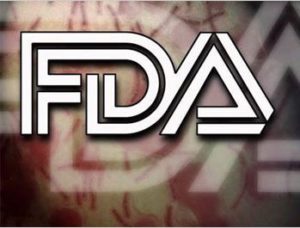- Nevada drops plan for extra Medicaid paperwork for mental health care (reviewjournal.com)
Nevada Medicaid will reverse its decision to require prior authorization for mental health services after providers and patients raised concerns that the policy change could delay treatment...The Division of Health Care Financing and Policy will hold a public hearing in October to rescind prior authorization requirements for psychotherapy and neurotherapy services, including “talk therapy” and biofeedback. Medicaid behavioral health supervisor Alexis Tucey announced the change Tuesday at a public workshop in Las Vegas...The policy approved in August will still take effect Oct. 1, giving providers five sessions with a patient before they are required to submit additional documentation to the state Medicaid office...The change came as a relief to providers who were worried they would have to stop seeing patients while waiting for approval of additional sessions or risk denial of payment by continuing to see clients to avoid disruption in care...
- Brexit Is Seen Costing Pharma Hundreds of Millions of Pounds (bloomberg.com)
Brexit uncertainty is forcing drugmakers in Britain to invest hundreds of millions of pounds to maintain the steady supply of medicines to patients, siphoning off money that could have gone to developing new treatments...Pharmaceutical companies are preparing for potential regulatory and trade hurdles after the U.K. leaves the European Union, expanding testing facilities, moving marketing authorizations and drafting contingency plans. Regulatory alignment between the EU and Britain makes sense to all sides, and if Britain remains part of Europe’s drug-approval system, a lot of the investment may prove to have been unnecessary, said Mike Thompson, chief executive of the Association of the British Pharmaceutical Industry...business leaders are urging Prime Minister Theresa May to finalize key Brexit decisions, many are already conducting costly preparations for a rocky break with the EU as the U.K. hurtles toward exiting the bloc in March 2019...The industry is concerned about possible delays in evaluating new drugs when the European Medicines Agency, the bloc’s regulator, moves to Amsterdam from London, he said. The agency is bracing for higher-than-anticipated staff departures due to a host of issues, including the effect of local labor laws on short-term contracts, EMA Executive Director Guido Rasi said in an interview...
- The Unhealthy Politics of Pork: How It Increases Your Medical Costs (nytimes.com)
No industry in America spends more on lobbying than health care...In 2016, the health care industry spent half a billion dollars on lobbying, with pharmaceutical companies, hospitals and health professionals making the largest contributions...Closely related to industry lobbying is the political maneuvering that congressional leaders use in an effort to pass legislation — specifically, targeted provisions known as earmarks, “sweeteners” or pork barrel spending...In 2010, Democrats hoping to secure votes from reluctant rural state senators added the “Frontier States” provision to the A.C.A., which increased Medicare payments to five states with low population densities...We all know earmarks and lobbying influence policymakers and policy. In health care, this has critical implications: who gets care, how much they get, how we pay for it. But there’s little hard data on exactly who benefits and how large the effects can be. A new study illuminates the ways these political dynamics can change congressional and hospital behavior — and how they can increase health care costs for the rest of us...America’s increasingly burdensome health care spending has many roots: new technologies, high drug prices, fragmented care, administrative expenses and the like. But lobbying and political maneuvering can increase costs, too — without clear benefits for patients, communities or society at large...Often these costs are borne by all of us, while the benefits — if any — go to a favored few. Excess medical spending, then, is driven not only by inefficiencies in our health system, but also by those in our political system. Our solutions, it seems, must confront that uncomfortable reality.
- First Gene-Transfer Therapy Approved for U.S. Market (ashp.org)Pioneering cancer drug, just approved, to cost $475,000 — and analysts say it’s a bargain (statnews.com)
FDA...announced the approval of tisagenlecleucel, a first-in-class chimeric antigen receptor (CAR) T-cell immunotherapy consisting of genetically modified autologous T cells, for the treatment of B-cell precursor acute lymphoblastic leukemia (ALL) in children and young adults...After modification in the laboratory and infusion back into the patient, the CAR T cells target and eliminate both normal and malignant CD19-expressing B cells. The genetic modification enhances the initiation of T-cell activation and the persistence of the transformed T cells...Novartis will market tisagenlecleucel as Kymriah. Labeling for the product states that it is indicated in patients up to age 25 years with ALL that is refractory or in second or later relapse...Tisagenlecleucel has an FDA-required risk evaluation and mitigation strategy (REMS) program that includes elements to assure safe use. The labeling states that the immunotherapy is available "only through a restricted program."...
- Nevada Medicaid approves policy requiring prior approval after 5 therapy sessions (thenevadaindependent.com)
Nevada Medicaid approved a requirement that therapists receive prior approval before providing more than five therapy sessions to a patient...The new policy, which takes effect on Oct. 1, will require psychologists, therapists and other mental health providers to submit written documentation to the state’s third-party vendor demonstrating the medical necessity of treatment and receive prior approval to continue providing both talk therapy and neurotherapy services after five sessions with a patient. The final policy is a scaled back version of earlier proposals from Medicaid to require prior authorization before the first session or after three sessions, both which received significant pushback from the mental health community over the last few weeks...The policy will only apply to patients enrolled in Medicaid’s fee-for-service program, in which Nevada Medicaid reimburses individual providers for services rendered, and not those who are covered under Medicaid managed care, where the state pays an insurance company a flat fee to provide health services to a patient. About one in four of the 650,000 Nevadans on Medicaid are enrolled in the fee-for-service-program.
- 5 ways to streamline prior authorization, improve outcomes (fiercehealthcare.com)2017 AMA Prior Authorization Physician Survey (ama-assn.org)
Physicians say they face long wait times for insurers to process prior authorizations and the delays can negatively impact patient outcomes...The American Medical Association surveyed 1,000 physicians, and 64% said they wait at least one business day for insurers to decide on prior authorization. Nearly one-third (30%) said they wait at least three business days for decisions...The vast majority of physicians surveyed said that lag time can have serious consequences for patients; 92% said the prior authorization process can lead to delays in access to care, and 78% said that waiting for a decision from insurers "sometimes, often or always" causes patients to abandon certain treatments entirely...The AMA survey illustrates a critical need to help patients have access to safe, timely and affordable care, while reducing administrative burdens that take away from patient care...Six major industry groups—including America's Health Insurance Plans and the AMA—joined forces to improve the prior authorization process. The groups agreed to five steps:
1. Reduce the number of healthcare professionals subject to prior authorization requirements based on their performance, adherence to evidence-based medical practices or participation in a value-based agreement with the health insurance provider.
2. Review the services and medications that require prior authorization on a regular basis and eliminate requirements for therapies that no longer warrant them.
3. Improve communication between health insurance providers, healthcare professionals and patients to minimize delays in care and ensure clear prior authorization requirements, rationale and changes.
4. Protect the continuity of care for patients on an ongoing active treatment or a stable treatment regimen when there are changes in coverage, insurance providers or prior authorization requirements.
5. Accelerate industry adoption of national electronic standards for prior authorization and improve transparency of formulary information and coverage restrictions at the point-of-care. - Thanks, California! SB17 Will Trigger Massive Speculative Buying, Windfall Pharmacy Profits, and Supply Chain Disruption (drugchannels.net)
California governor Jerry Brown has just signed SB-17 – Drug Price Transparency into state law...This law is truly nutty. It won’t accomplish much of what it purports to do...Pharmacies and healthcare providers will become the primary beneficiaries of SB17’s requirement that pharmaceutical manufacturers provide advance notice of WAC price increases. Payers and patients will see limited gains. The state of California will see no appreciable benefit...This unexpected result will occur because the revenues and profits of pharmacies are linked directly to brand-name list prices. By providing advance notice of a price increases, pharmacies will have enormous incentives to purchase extra inventory and earn windfall profits. These profits do not have to be shared with third-party payers or patients...SB17 should encourage manufacturers to begin exploring direct inventory management relationships with key pharmacies to minimize speculation and the accompanying risks of drug shortages and diversion. It will be tough to negotiate these agreements, because pharmacies will see the lure of big profits...speculative purchasing will wreak havoc with pharmaceutical supply chains. What were California’s legislators thinking? Do they have any idea how little California will benefit from advance notice? What will happen to the excess inventory and higher pharmacy profits generated by California’s new law?...Don’t ask the people who wrote the bill. They seem completely oblivious to SB17’s actual impact...
- Mental health providers concerned about proposed limits on therapy sessions for Medicaid patients without prior approval (thenevadaindependent.com)Nevada Medicaid shift could impact continuity of mental health care (reviewjournal.com)
Nevada Medicaid will decide next month whether to impose additional requirements for patients to undergo therapy on an ongoing basis, a move the state says will increase accountability and ensure people are getting the care they actually need...mental health providers across the state are decrying as yet another barrier to access to mental health care for a vulnerable population...The Division of Health Care Financing and Policy...to decide whether to require psychologists, therapists and other mental health professionals to provide written documentation demonstrating medical necessity and receive prior approval to continue providing talk therapy or neurotherapy…State officials describe the policy as an effort to be both fiscally and socially responsible, ensuring that providers are only getting paid for services that are actually necessary and that patients are receiving the right treatment for their condition...opponents...argue that it will damage an already-thin safety net for patients by imposing additional administrative burdens on providers…
- FDA Moving to Enhance Drug Approval Transparency, Gottlieb Says (ptcommunity.com)
New pilot program to evaluate disclosure of clinical study reports...As part of its efforts to enhance transparency around drug approval decisions, the FDA is exploring ways it can continue to build on its obligation to share information…The agency is especially focused on information that can improve patient care and better inform providers about the products they prescribe. One place where it is evaluating how it can release information that may better inform scientists, providers, and patients is clinical study reports (CSRs)...The FDA has launched a pilot program to evaluate whether disclosing certain information included within CSRs following approval of an NDA improves public access to drug approval information...The FDA intends to post the parts of the CSRs that were most important to the agency’s assessment of the safety and efficacy of the drug, specifically, the study report body, the protocol and amendments, and the statistical analysis plan for each of the participating product’s pivotal studies...
- Las Vegas-area hospitals like ‘war zones’ after Strip massacre (reviewjournal.com)
The bullet wounds that University Medical Center trauma surgeon Dr. Jay Coates saw late Sunday night were to the head, chest, abdomen, legs and arms...“It was like we were in a war zone,” he said early Monday...“From our patients’ wounds, you could tell a high-powered weapon had been used.”...Despite that preparation, UMC medical personnel and others at Sunrise, Valley and St. Rose Dominican hospitals said the carnage...Stephen Paddock unleashed at the...country music festival adjacent to Mandalay Bay was beyond anything you could imagine. Patients arrived so fast that the surgeons and support personnel couldn’t begin to keep up...“It was controlled chaos, a combat medical hospital — blood everyplace,” said Dr. Dale Carrison, head of emergency...staff at UMC...UMC, Southern Nevada’s only Level I trauma center, received 104 patients. Other patients — the final number is still uncertain — were later transferred to the hospital from other medical centers that couldn’t handle the severity of the gunshot wounds...Sunrise Hospital and Medical Center, a Level II trauma center and the closest trauma center to the Strip, treated 214 patients, with at least 30 needing surgery. Fifteen patients died there. The Sunrise system’s other hospitals, Southern Hills and Mountain View, treated nine and eight patients, respectively...Gretchen Papez, a spokeswoman for the Valley Hospital System, said the network of hospitals received a total of 228 patients, eight of whom died. She provided this breakdown by individual hospital: Desert Springs, 105 patients treated; Spring Valley, 53; Henderson, 32; Valley, 29; Summerlin, six; and Centennial Hills, three.









